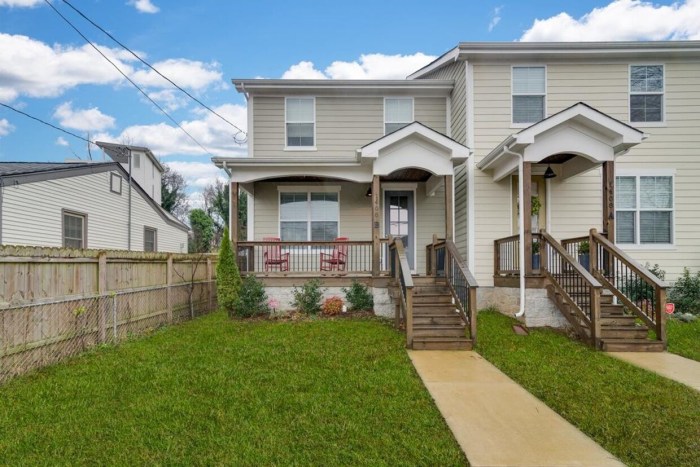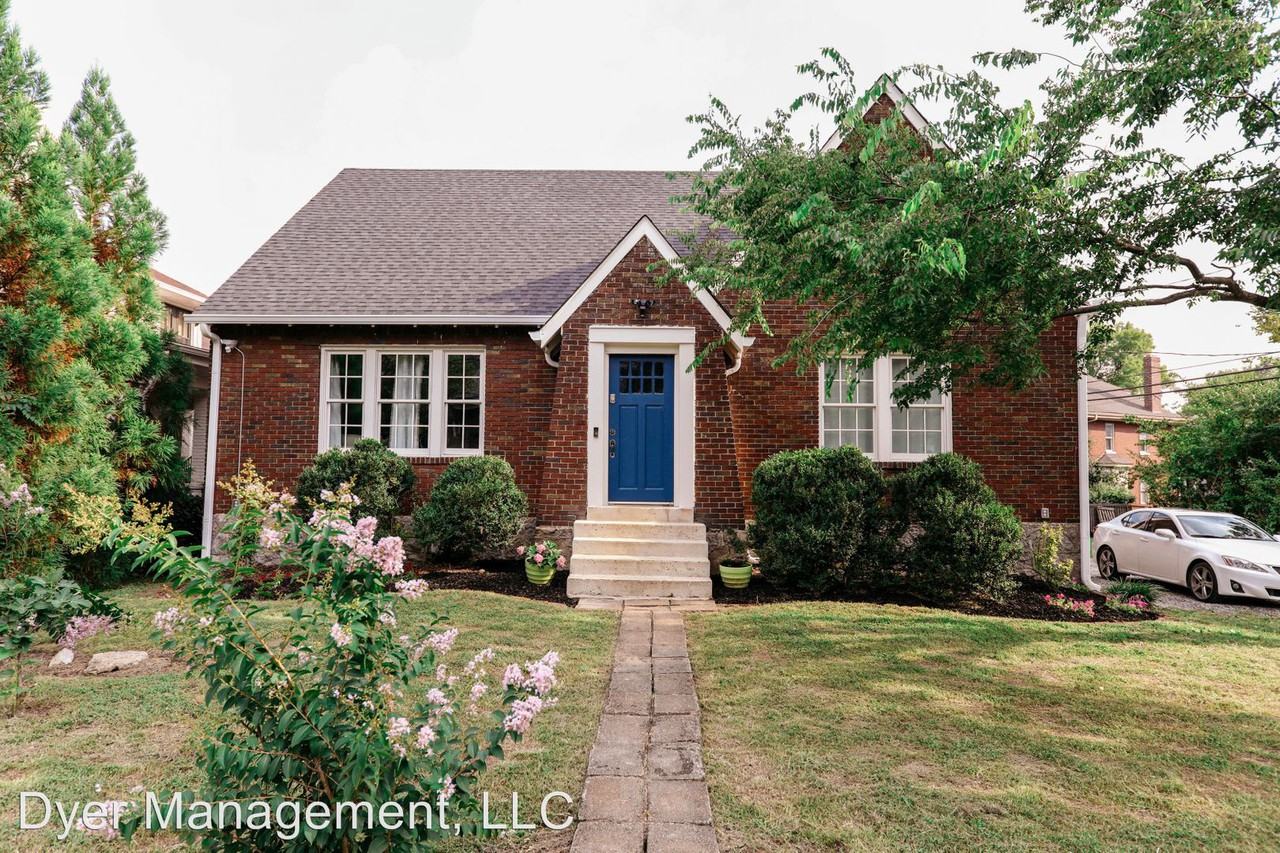Houses for Rent in Nashville NC
Rental Market Overview in Nashville, NC
Houses for rent in nashville nc – Nashville, NC, presents a dynamic rental market with diverse options catering to various budgets and preferences. Understanding the current trends and average rental costs is crucial for prospective tenants. This section provides an overview of the market, highlighting popular neighborhoods and comparing rental costs with neighboring areas.
Current State of the Rental Market
The rental market in Nashville, NC, is currently experiencing [insert current market condition – e.g., moderate growth, high demand, stable prices]. Average rental prices vary depending on property type, location, and amenities. For example, a one-bedroom apartment might average [insert price range], while a three-bedroom house could range from [insert price range] to [insert price range]. These figures are subject to change based on market fluctuations and seasonal variations.
Popular Neighborhoods for Renters
Several neighborhoods in Nashville, NC, are particularly popular among renters due to their unique features and proximity to amenities. [Insert neighborhood 1] is known for its [describe key features, e.g., family-friendly atmosphere, good schools, proximity to parks]. [Insert neighborhood 2] offers a more [describe key features, e.g., vibrant and urban setting, walkability, access to nightlife]. The popularity of these areas often translates to higher rental costs compared to other parts of town.
Rental Cost Comparison with Neighboring Towns
Compared to neighboring towns like [insert neighboring town 1] and [insert neighboring town 2], Nashville, NC, offers [describe comparative rental costs, e.g., generally more affordable options, comparable prices, slightly higher costs]. This difference can be attributed to factors such as [explain contributing factors, e.g., proximity to employment centers, local amenities, overall cost of living]. Thorough research into surrounding areas is recommended to find the best value for your rental budget.
Finding the perfect house for rent can be challenging, especially in areas like Nashville, NC, with its competitive rental market. If you’re open to exploring other options, you might consider checking out the available properties in Michigan, specifically looking at houses for rent in Macomb County , which offers a different housing landscape. Ultimately, the best choice depends on your individual needs and preferences, but comparing Nashville, NC and Macomb County rentals might broaden your search.
Average Rental Prices by Neighborhood
| Neighborhood | Average Rent (1-bedroom) | Average Rent (2-bedroom) | Average Rent (3-bedroom) |
|---|---|---|---|
| [Neighborhood 1] | $[Price Range] | $[Price Range] | $[Price Range] |
| [Neighborhood 2] | $[Price Range] | $[Price Range] | $[Price Range] |
| [Neighborhood 3] | $[Price Range] | $[Price Range] | $[Price Range] |
Types of Rental Properties Available
Nashville, NC, provides a diverse range of rental properties to suit different lifestyles and preferences. Understanding the advantages and disadvantages of each type is essential for making an informed decision. This section Artikels the common types of rental properties available, highlighting their features and amenities.
Variety of Rental Property Types
- Apartments: Offer convenience and often include amenities like swimming pools and fitness centers. However, they may lack privacy and outdoor space compared to other options.
- Houses: Provide more space, privacy, and often a yard. However, they usually require more maintenance and responsibility.
- Townhouses: Combine the benefits of both apartments and houses, offering a balance of space, privacy, and amenities. They typically share some common walls with neighboring units.
Common Amenities in Nashville Rental Properties

Source: apartments.com
- Central air conditioning and heating
- Washer and dryer connections or in-unit laundry
- Off-street parking
- Pet-friendly options (often with additional fees)
- Updated kitchens and bathrooms
Finding Rental Properties
Locating the ideal rental property in Nashville, NC, requires a strategic approach. This section details various methods for finding rental properties, their pros and cons, and emphasizes the importance of thorough research. A step-by-step guide will assist prospective renters in their search.
Methods for Finding Rental Properties
- Online Listings (Zillow, Apartments.com, etc.): Offers a wide selection of properties and allows for easy filtering based on criteria. However, it can be overwhelming with the sheer volume of listings and requires careful verification of information.
- Real Estate Agents: Provide personalized assistance and expertise in navigating the rental market. However, they may charge fees or commissions.
- Direct Contact with Property Management Companies: Allows for direct communication and potentially faster processing of applications. However, the selection may be limited to properties managed by that specific company.
Step-by-Step Guide for Finding Rental Properties
- Define your needs and budget.
- Search online listings and explore different neighborhoods.
- Contact property managers or real estate agents.
- Schedule viewings of potential properties.
- Thoroughly research each property and neighborhood.
- Make a decision and submit an application.
Rental Application Process
The rental application process in Nashville, NC, typically involves several key steps. Understanding these steps and the required documentation will streamline the process and increase your chances of approval. This section details the application process, including necessary documents and a checklist for applicants.
Steps Involved in Applying for a Rental Property
The application process generally includes submitting an application form, providing supporting documentation (such as proof of income, employment history, and references), undergoing a credit and background check, and potentially an interview with the property manager or landlord. The specific requirements and timelines may vary depending on the property management company or individual landlord.
Necessary Documents and Information
Commonly required documents include a completed application form, government-issued identification, proof of income (pay stubs, tax returns), employment verification, rental history, and references. Some landlords may also require a credit report and background check.
Application Process Checklist
- Gather all necessary documents.
- Complete the rental application accurately and completely.
- Provide all required supporting documentation.
- Follow up with the property manager or landlord.
- Review the lease agreement carefully before signing.
Lease Agreements and Tenant Rights
Lease agreements Artikel the terms and conditions of a rental agreement, protecting both landlords and tenants. Understanding the key elements of a lease agreement and the rights and responsibilities of both parties is crucial for a positive rental experience. This section highlights key aspects of lease agreements and dispute resolution processes.
Key Elements of a Standard Lease Agreement
A standard lease agreement typically includes details about the rental property, the rental term, the monthly rent amount, security deposit requirements, responsibilities for maintenance and repairs, pet policies, and procedures for lease termination. It is crucial to read the entire lease carefully before signing.
Landlord and Tenant Rights and Responsibilities
North Carolina law defines the rights and responsibilities of both landlords and tenants. Landlords are responsible for maintaining the habitability of the property, while tenants are responsible for paying rent on time and maintaining the property in a reasonable condition. Specific details regarding these rights and responsibilities can be found in North Carolina’s landlord-tenant laws.
Dispute Resolution
Disputes between landlords and tenants can be resolved through various methods, such as mediation or arbitration. In some cases, legal action may be necessary. It’s advisable to attempt to resolve disputes amicably before resorting to legal action.
Neighborhood Features and Amenities
The characteristics of different neighborhoods in Nashville, NC, significantly influence the rental experience. This section describes various neighborhoods, highlighting features crucial to renters, including proximity to amenities and transportation routes. A description of a desirable neighborhood is provided to illustrate the ideal rental environment.
Neighborhood Characteristics and Amenities
Each neighborhood in Nashville offers a unique character and set of amenities. [Neighborhood A] is known for its quiet, residential streets, excellent schools, and proximity to parks. [Neighborhood B] offers a more vibrant atmosphere with numerous shops, restaurants, and easy access to major highways. [Neighborhood C] is characterized by its historic architecture, charming downtown area, and walkability.
Proximity to Transportation

Source: zumpercdn.com
The proximity of neighborhoods to major transportation routes is a key factor for many renters. [Neighborhood A] is conveniently located near [major road/highway], offering easy commutes to [nearby cities/towns]. [Neighborhood B] is within walking distance of public transportation, making it an attractive option for those who prefer not to drive.
Description of a Desirable Neighborhood
Imagine a neighborhood nestled amidst rolling hills, lined with mature trees and well-maintained homes. The streets are quiet and safe, ideal for families and those seeking a peaceful atmosphere. A nearby park offers recreational opportunities, and the community center hosts regular events. The neighborhood’s proximity to schools, shopping centers, and major highways adds to its appeal, creating a balanced environment that combines tranquility with convenient access to essential amenities.
This harmonious blend of natural beauty and modern convenience defines a truly desirable neighborhood.
Cost of Living and Budgeting for Rent
The overall cost of living in Nashville, NC, significantly impacts rental budgets. Understanding this impact and incorporating other expenses into a realistic budget is essential for responsible financial planning. This section discusses the cost of living, budgeting strategies, and methods for calculating a realistic rental budget.
Cost of Living and Rental Budgets
The cost of living in Nashville, NC, is [describe cost of living – e.g., relatively affordable, moderate, higher than the national average]. This includes factors beyond rent, such as utilities, groceries, transportation, and entertainment. When budgeting for rent, it’s crucial to consider these additional expenses to ensure a comfortable and sustainable lifestyle.
Factors to Consider in Rental Budgeting
Beyond the monthly rent, renters should factor in utilities (electricity, water, gas), internet and cable, renter’s insurance, potential pet fees, transportation costs, and groceries. Unexpected expenses, such as repairs or maintenance, should also be considered.
Strategies for Finding Affordable Rental Properties
To find affordable rental properties, consider searching in less central neighborhoods, looking for smaller units, or sharing a rental with roommates. Negotiating with landlords or property managers can also help secure a more favorable rental rate.
Calculating a Realistic Rental Budget, Houses for rent in nashville nc
To calculate a realistic rental budget, determine your monthly income after taxes and deduct essential expenses such as utilities, transportation, groceries, and debt payments. The remaining amount should ideally be 30% or less of your income, allocated for rent. For example, if your monthly income after taxes is $3,000 and your essential expenses are $1,500, your maximum rental budget would be around $450 ($1,500 remaining income x 30%).
Helpful Answers: Houses For Rent In Nashville Nc
What is the average security deposit in Nashville, NC?
Security deposits typically range from one to two months’ rent, varying based on the property and landlord.
How long is the typical lease term?
Common lease terms are six months or one year, but shorter or longer terms may be available depending on the property.
Are pets allowed in most rentals?
Pet policies vary widely. Some landlords allow pets with additional fees and restrictions, while others have strict “no pet” policies. Always inquire directly.
What are the typical move-in costs?
Expect to pay the first month’s rent, last month’s rent (in some cases), and a security deposit. Application fees and other administrative charges may also apply.




















